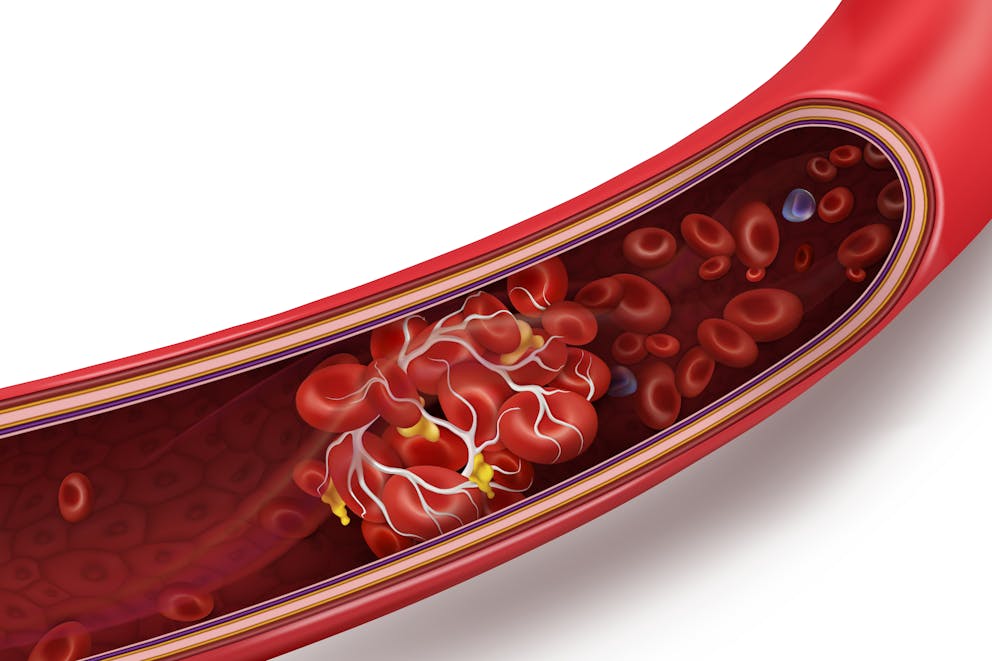When NOT to Take Extra Vitamin D
Though often overlooked, too much vitamin D can lead to dangerous side effects that should not be taken lightly. While Vitamin D is essential for maintaining bone health and supporting immune function, high doses can lead to serious complications and it is important to be informed about potential risks.
Discover the side effects of elevated calcium levels caused by an overdose of vitamin D, learn about hypercalcemia symptoms, and explore the risks associated with high calcium levels in the blood.
Also, learn about certain conditions that require avoiding extra vitamin D supplementation due to increased risk factors.
Potential Side Effects of Excessive Vitamin D
While vitamin D is essential for overall health, excessive amounts can lead to hypercalcemia. This condition occurs when there's too much calcium in the blood and may cause symptoms such as kidney stones, bone pain, excessive urination, muscle weakness, depression, and anxiety.
It's crucial to be aware of these possible side effects before increasing your vitamin D intake.
Hypercalcemia Symptoms
Recognizing symptoms of hypercalcemia is crucial for early identification and appropriate intervention. Some of the most common symptoms include:
Kidney stones: High levels of calcium in the blood can lead to the formation of painful kidney stones.
Bone pain: Excess calcium may cause aching or discomfort in bones.
Excessive urination: Increased thirst and frequent urination are common signs of hypercalcemia.
Muscle weakness: Too much calcium can interfere with normal muscle function leading to fatigue and weakness.
Anxiety & Depression: Research published in Issues in Mental Health Nursing suggests that a high vitamin D level might contribute to mood swings or feelings of unease and sadness (source).

Risks Associated with High Levels Of Calcium In The Blood
In addition to the symptoms mentioned above, elevated blood calcium levels could pose other risks. These include impaired cognitive function, abnormal heart rhythms, and potential kidney damage. Keeping track of your vitamin D intake and speaking with a medical professional if you develop any unusual symptoms after taking vitamin D is essential for optimal health.
Knowledge of the risks associated with excessive vitamin D intake is essential for maintaining good health, and it's equally important to understand which conditions require avoiding extra vitamin D to maintain health and well-being.
When to Avoid Extra Vitamin D
Vitamin D is essential for maintaining overall health, but certain medical conditions may require individuals to avoid taking extra vitamin D due to an increased risk of developing hypercalcemia.
Let's discuss some of these conditions and why they require caution regarding additional vitamin D supplementation.
Sarcoidosis
Sarcoidosis is an immune system disorder that causes inflammation in various organs, most commonly the lungs. Individuals with sarcoidosis have been found to have elevated blood calcium concentration, which could be made worse with vitamin D supplementation, increasing the risk of developing hypercalcemia.
Primary Hyperparathyroidism
Primary hyperparathyroidism occurs when the parathyroid gland becomes overactive and produces excessive parathyroid hormone (PTH) levels. PTH regulates calcium balance in the body, and too much PTH can quickly lead to high blood calcium levels.
Additional vitamin D intake could increase calcium concentrations and contribute to kidney stones, bone pain, fatigue, and mood changes.
Familial Hypocalciuric Hypercalcemia
Familial hypocalciuric hypercalcemia is a rare genetic disease characterized by elevated blood calcium levels and low urinary calcium excretion. This condition results from mutations in genes responsible for regulating calcium balance, making affected individuals more susceptible to the effects of excess vitamin D.
Therefore, individuals with familial hypocalciuric hypercalcemia should consult their healthcare provider before taking additional vitamin D supplements.
Cancer-related risks
Some cancers that affect the metabolism, such as certain types of lymphoma and bone cancer, can cause excessive blood calcium levels. Additional vitamin D supplementation might exacerbate symptoms or lead to hypercalcemia-related complications in these cases.
It's essential for patients with cancer affecting their calcium metabolism to consult their oncologist before starting any new supplement regimen.

Medications and Health Issues Affecting Vitamin D Intake
It is essential to be aware of certain medications or health issues that can interfere with how your body processes vitamin D or may increase the likelihood of developing complications related to excess calcium levels.
For example, lithium treatment might interact negatively with vitamin D supplementation, and diuretics like hydrochlorothiazide could contribute to an increased risk of hypercalcemia.
Lithium Interaction Concerns
Lithium, a medication commonly prescribed for bipolar disorder, has been reported to affect calcium metabolism in some individuals.
This may lead to an increased risk of hypercalcemia when taking additional vitamin D supplements, and it's crucial to consult a healthcare provider before increasing your vitamin D intake if you are taking lithium-containing medications.
Diuretics' Impact on Calcium Levels
Certain diuretics, such as hydrochlorothiazide, are known for their potential to raise calcium levels in the body. These medications promote fluid loss through urination which can inadvertently cause an increase in blood calcium concentrations.
Hypercalcemia may be a side effect if too much vitamin D is taken alongside these diuretics:
Potassium-sparing diuretics such as amiloride and spironolactone do not typically affect calcium levels but should still be monitored closely when combined with a vitamin D supplement.
Loop diuretics such as furosemide (Lasix) have less impact on overall blood calcium levels but may cause electrolyte imbalances and should be used cautiously with additional vitamin D intake.
Before increasing your vitamin D intake, it is essential to consult with a healthcare provider about any existing medications or health issues. This will help ensure that you take the appropriate dosage for your needs while minimizing potential side effects or interactions.
Conclusion
While vitamin D is a essential to maintaining overall health, it's essential to be aware of the potential risks of consuming too much vitamin D, such as elevated calcium levels in the blood, also known as hypercalcemia.
Certain health conditions such as sarcoidosis, primary hyperparathyroidism, and certain cancers can increase the risk of hypercalcemia and may require avoiding extra vitamin D.
Before making any changes to your diet or supplement regimen, it's recommended to consult a healthcare professional to discuss the use of vitamin D or any other supplement.
FAQs
1. Are there any negative side effects of taking vitamin D?
Yes, excessive vitamin D intake can lead to adverse side effects such as elevated blood calcium levels, also known as hypercalcemia.
Hypercalcemia is characterized by symptoms like nausea, vomiting, constipation, and weakness and may increase the risk of kidney stones and cardiovascular issues.
2. What are the main effects of vitamin D?
Vitamin D is crucial in maintaining bone health by regulating calcium absorption and promoting healthy bone growth. It also supports immune system function and has anti-inflammatory properties that help protect against chronic diseases like cancer and autoimmune disorders.
3. What are the three effects of vitamin D on the body?
Maintains bone health: Vitamin D regulates calcium absorption for strong bones.
Supports immune system: Its anti-inflammatory properties aid overall immunity.
Promotes cell growth regulation: Helps prevent abnormal cell proliferation related to cancer development.
4. What is the controversy with vitamin D?
The controversy surrounding vitamin D mainly revolves around its recommended daily dosage.
Some experts argue that current guidelines are too low due to factors like limited sun exposure or skin type affecting natural production.
Others express concerns about potential risks associated with excessive supplementation leading to adverse side effects such as hypercalcemia.
Previous blog
How Does Vitamin D Reduce InflammationTags

Popular
08/21/2024
55.7K views
02/23/2025
46.8K views
11/18/2024
281.1K views
03/18/2024
11/21/2022




